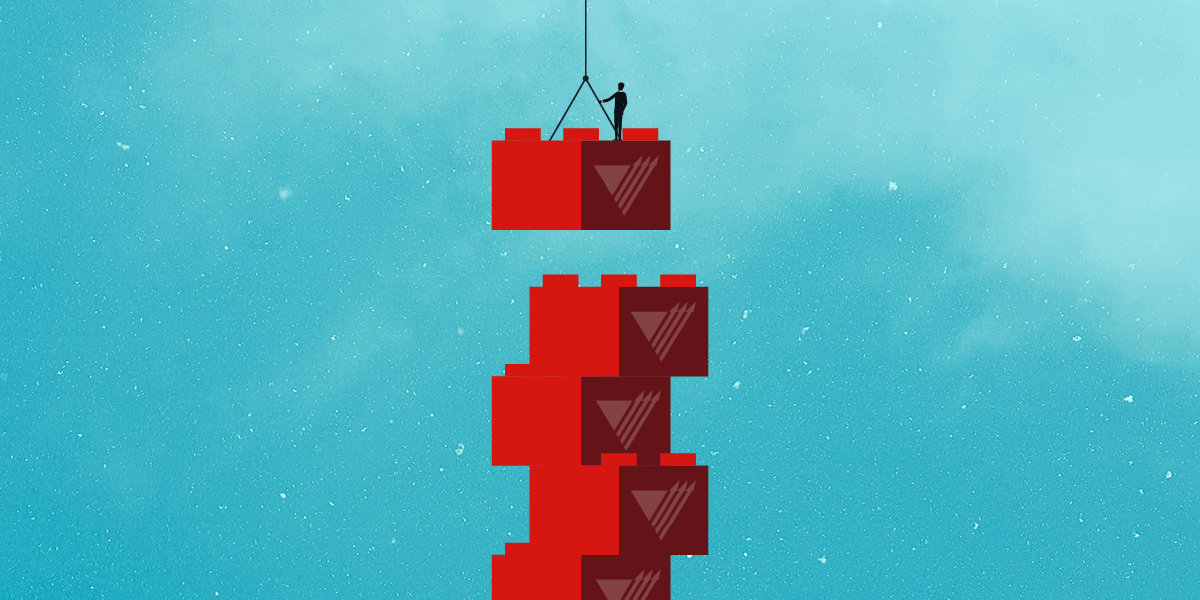
I remember how I felt when I received my acceptance letter to Emerson College.
It felt so momentous, knowing that I had gotten into the school I wanted, to study my passion: Writing, Literature, and Publishing.
For four years at Emerson, I fantasized about what life might be like after I graduated. I pictured myself publishing a few novels, perhaps becoming a professor like the ones I adored on campus.
I was realistic about these personal goals. I knew it wouldn’t happen right after graduation. I’d have to work other jobs to support myself, until I was stable enough to really focus on my ultimate personal goal of becoming a published author.
So I waited, while I got one low-paying job, and then another. I poured everything into those jobs, trying to climb up the ladder until I was earning enough to relax some and focus on writing.
Then I fell in and out of love a few times, and started my own business, and there was a global pandemic, and then, and then, and then…
Suddenly I was in my late 30s and hadn’t written a word of novel or short story in years.
Call it a mid-life crisis (or maybe a late quarter-life crisis?), but that realization shook me to my core. And about a year and a half ago, I decided to make a change.
It was a mistake to put my personal goals on the back burner for so long. If I had a time machine, I’d go back and shake my old self by the shoulders and tell him to get his priorities straight.
But I think I’ll save that sci-fi plot for my next novel. Instead, I’m going to explain why I and so many others end up putting their personal goals on hold, and I’ll give you practical tips to help you break free of that behavior and achieve the life of your dreams.
Losing sight of your personal goals—and how to get them back
Maybe you’re reading this article thinking, “What even are my personal goals?”
You’re not alone. I’ve been there—recently.
Before I decided to return my focus to my personal goals, I had to go through what I think of as “my personal desert.”
It started with a general feeling of uncertainty about what I wanted in life.
I’d achieved a number of personal goals—I started my own business and became a digital nomad. But those things weren’t bringing me satisfaction anymore, and I had no idea where to turn to replace it.
I won’t lie; this was a challenging, depressing time. It lasted over a year before I started to find my way out of the desert and make big changes in my life.
I found my way back to my personal goals by doing three things:
📚 Reading, learning, and watching others I admire. I devoured blogs and social posts from writers and freelancers I admired, picked up lots of books at the library on random topics, went to live events, watched YouTube videos, and otherwise filled my time with education. (Related: How To Be a Lifelong Learner)
🎯 Trying lots of new, random activities. In the process of hunting for my personal goals, I learned how to cross-stitch, something I still enjoy doing. I also tried and failed to learn calligraphy, makeup artistry, Dungeons and Dragons, and the art of crossword creation. I didn’t expect any of those to lead to a genuine shift in my personal goals, but just giving my brain some new options helped me unlock the path back to my true personal goals.
If you’re struggling to identify exactly what your personal goals are, I suggest trying these three tactics, with your own spin.
Talk with people you trust about what matters to you, and learn what their personal goals are. Pick a few new subjects to learn about, new hobbies to experiment with—even if they have nothing with what you think your personal goals are likely to be.
Let those experiences guide you, and your true personal goals will reveal themselves.
The lies we tell ourselves about personal goals
When I think about why I put off my personal goals for so long, I realize the primary person standing in my way was, simply, me.
Or rather, it was the part of my brain that fears change, lacks self-esteem, and wants to protect me from harm—even if those methods of protection aren’t exactly helpful.
The book that helped me out of my personal goals slump was “The Artist’s Way” by Julia Cameron. In it, she talks about how each one of us has a “Censor” that lives inside our minds, trying to prevent us from hurting ourselves.
Cameron says this part of our brain is ancient, left over from our times as apes in trees.
—Julia Cameron, “The Artist’s Way”
What does all this have to do with personal goals? Well, in my case, my Censor saw my personal goals as a potential hazard.
Related: Try Something New: Why It’s So Scary and So Worth It
Pursuing a life as a novelist was risky—far riskier than the safe life I’d built in my day-to-day, less creative job. It was a big, unknown meadow, and my brain wanted me to stay far away from it.
To discourage me from exploring the unknown, my brain came up with a number of very convincing lies. They sounded something like this:
You’ll go broke if you try to be a creative writer.
You were always just an OK writer, never a great one.
It takes luck and charm to get a book published, and you don’t have either.
You waited too long, and now it’s too late to go after your dreams.
I believed these lies for a long time, until I eventually (with the help of therapy and lots of mindfulness) I found a way to start countering those lies with some reality checks.
I responded to them like this:
I can still write creatively and earn income through other means.
I’ve always been a good writer, and only gotten better with time. Becoming a published writer is more about perseverance than raw talent, anyway.
I’ve got as much luck as anyone else on this Earth, and I’m plenty charming when I’m feeling confident.
I’m not getting any younger! If I don’t try it now, when will I?
At first, countering the Censor’s lies felt like a form of lying in itself. But eventually, I began to believe the corrections, and soon I could more easily differentiate the Censor’s voice from my own.
Identifying and countering your Censor’s lies
The first step to identifying your own self-censorship is to start checking in with yourself every day. It has to become a habit.
In the past, I’ve used a simple timer to remind myself to do a check-in. It would buzz on my phone about an hour after I woke up, and I’d pause for just one minute and ask myself: What thoughts have been running through my head this morning?
Later, I integrated journaling, stretching, and yoga into my check-ins, and that became the foundation of my mindfulness practice.
Don’t let that term turn you off—having a mindfulness practice simply means you exercise your mind just as you would exercise your body to build strength and fitness.
You’ll need that mental fortitude to push forward with your personal goals.
For more guidance on mindfulness, check out these resources:
Setting, tracking, and enjoying your personal goals
Exploring your personal goals in your head is one thing—putting them into action is where the real work comes in.
Though, I hesitate to use the word “work,” because though personal goals should be challenging, they should ultimately be rewarding in both the short- and long-term.
Discipline and discomfort are built-in when it comes to achieving personal goals. I’ve had to drag myself to networking events, force myself to write when I didn’t want to, and sift through painful rejections and feedback to make progress with my personal goals. You will have your own stumbling blocks and challenges, and will need to devise your own methods for overcoming them.
There is one big challenge that is universal to all personal goals: lack of stamina.
You will be constantly tempted to give up on your personal goals, because it can be exhausting and sometimes feel pointless.
That’s natural, but if you let those negative thoughts win out, then you’ll never reach your personal goal.
So any method you use to overcome challenges should be designed to increase your stamina and help you keep going.
For me, that means:
Choosing realistic goals and dividing them into smaller, manageable steps. My big goal is to publish several books, but along the way I want to grow my writing community, improve my storytelling skills, learn about the publishing industry, etc. And each of those mini-goals can be divided into steps, and so on. These small goals are much more achievable. Here’s more on how to choose realistic goals. Rewarding myself for the hard stuff. Never, ever underestimate the power of treats to motivate you toward your personal goals. When I am gearing up to do something difficult, I bookend the task with positive treats to motivate me. For example, I might go to a cafe and splurge on a nice latte, to encourage myself to work on a particularly challenging chapter of my memoir. When I’m done, I’ll reward myself with a walk around the park, or some cuddle time with my dog on the couch. (Treats don’t have to cost money.) These little rewards give my brain the payoff it needs to keep pushing ahead.
Take a moment to think about where you are with your personal goals. Do you have defined goals that you can’t seem to complete? Are you struggling to identify the goals you want to achieve? Or maybe you’re already making good progress, but want to speed up your personal goal journey? Whatever the case may be, I hope some of the tactics I’ve covered in this article will take you where you want to be.
What personal goals are you working on? How are you planning to get there? Let me know in the comments. 👇










